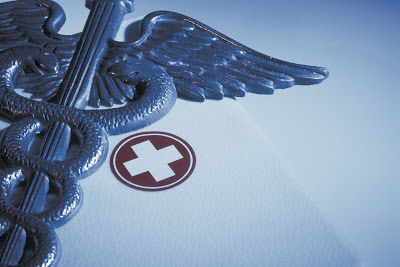Defibrillator devices are class of medical devices used for
delivering shock in a controlled and automated manner. These devices are mainly
used for therapeutic purposes in cardiovascular critical care management, where
electrical shock is required to convert patient’s abnormal heart rhythm into
normal heart rhythm to revive the victim of sudden cardiac arrest. These
defibrillators help in saving the life of a SCA victim, who would have few
minutes lifeline and requires resuscitation to avoid situations, which would
lead to serious life threatening circumstances or even sometimes to death of a
patient.
Defibrillator devices market is segmented on the basis of
products, applications, end-users and geography. Products are segmented into
devices, consumables and servicing, whereas devices are further segmented into
Implantable Cardioverter Defibrillators (ICD’s) and external defibrillators.
Implantable cardioverter defibrillators are further segmented into Transvenous
Implantable Cardioverter Defibrillators (T-ICD’s) and Subcutaneous Implantable
Cardioverter Defibrillators (S-ICD’s), similarly external defibrillators are
classified into Automated External Defibrillators (AED’s), Wearable
cardioverter defibrillators and Advanced Life Support Defibrillators (ALS).
Consumables are further segmented into electrode pads, battery & chargers,
first aid kits and supplies/rescue kits and others including cables & data
cables, carry cases or backpacks, training units, training manikins and
cabinets Applications are segmented into
ventricular fibrillation, ventricular tachycardia and bradycardia. End-users
are further classified into hospitals, ambulatory surgical centers, homecare,
public access care, pre-hospitals and others (clinics & cardiac centers
& alternative care centers).
According to Publisher analysis, the defibrillator devices
global market is expected to grow at a mid to high single digit CAGR to reach
$17,710.8 million by 2023. Among the defibrillator devices products market
implantable cardioverter defibrillators segment holds the largest share of the
market and external defibrillators is expected to be the fastest growing
segment. In applications market ventricular tachycardia holds the largest share
of the market and ventricular fibrillation is expected to grow with a strong
CAGR from 2016 to 2023. In end- users, hospitals are the largest segment and
home healthcare is the fastest growing segment from 2016 to 2023.
Geographically, North America is the largest market followed by Europe and Asia
Pacific. The APAC region is the fastest growing region from 2016 to 2023
presenting an array of opportunities for growth and is likely to get attention
of new investors in the defibrillator devices market. Growth in the Asian
market is attributed to rising prevalence of lifestyle diseases and government
initiatives in establishing innovative technologies and demand for
sophisticated medical services.
The defibrillator devices market is expected to grow at a
single high digit CAGR during 2016 to 2023. Increase in aging population and
subsequent rise in incidence of cardiovascular diseases, increasing use of
defibrillators in public access areas and favorable reimbursement policies are
the factors driving the market growth. Increasing trend of MRI compatible
defibrillators, emergence of next generation integrated ICD’s and market
expansion opportunities in emerging nations are expected to offer potential
opportunities.
However various factors like patient safety risks due to
chances of infection and other complications while using defibrillators, lack
of awareness on sudden cardiac arrests limit the growth of defibrillator
devices global market. The threats for the defibrillator devices market include
lack of cybersecurity in ICD’s and increasing number of defibrillator device
recalls due to FDA mandates.
The defibrillator devices global market is a highly
competitive market and all the existing players in this market are involved in
developing new and advanced products to maintain their market shares. Some of
the key players of the defibrillator devices market are Boston Scientific
Corporation (U.S.), Abbott Laboratories (U.S.), Asahi Kasei Corporation
(Japan), Medtronic PLC (Ireland), Philips Healthcare (Netherland), Biotronik Se
& Co. Kg (Germany), Stryker Corporation (U.S.), LivaNova (U.K.) and Nihon
Kohden Corporation (Japan).
The report provides an in depth market analysis of the
above mentioned segments across the following regions:
- North America
- Europe
- Asia-Pacific
- Rest of the World (RoW)
Spanning over 373 pages “Defibrillator Devices
Global Market - Forecast to 2023” report covers Executive Summary,
Introduction, Market Analysis, Defibrillator Devices Global Market, By
Products, Defibrillator Devices Global Market, By Applications, Defibrillator
Devices Global Market, By End-Users, Defibrillator Devices Global Market, By
Geography, Company Developments, Company Profiles. This Report Covered 64
Companies Few Are - Abbott Laboratories (St. Jude Medical, Inc.), Ashai Kasei
Corporation (Zoll Medical Corporation), Aurora Capital Group (Cardiac Science
Corporation), Boston Scientific Corporation, Biotronik Se & Co.Kg,
Livanova, Plc (Sorin Group), Medtronic Plc, Nihon Khoden Corporation
(Defibtech), Philips Healthcare, Physio Control Inc (Stryker Corporation), 3b
Scientific Gmbh, A.M.I. Italia S.R. L, Abbott Laboratories, Allied Medical Limited,
Asahi Kasei Corporation.
For
more information Visit at: http://mrr.cm/UqY
Find all Medical Devices Reports at: http://www.marketresearchreports.com/medical-devices

No comments:
Post a Comment
Note: only a member of this blog may post a comment.